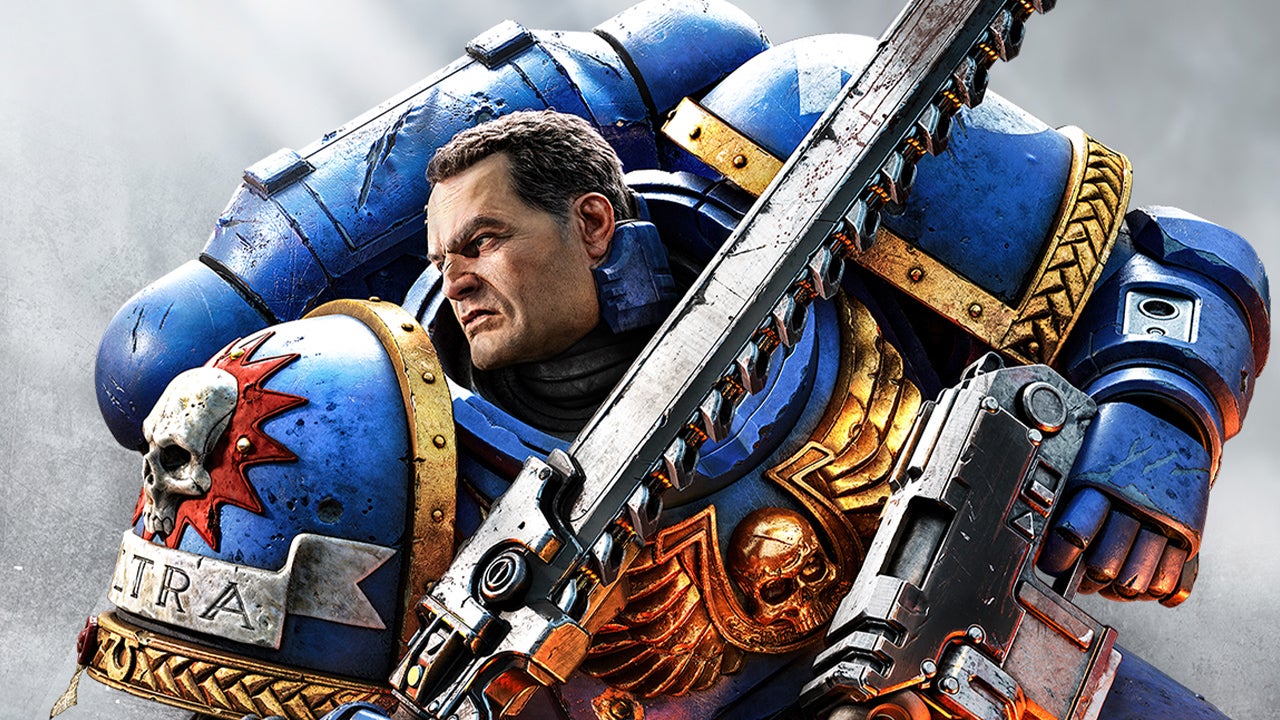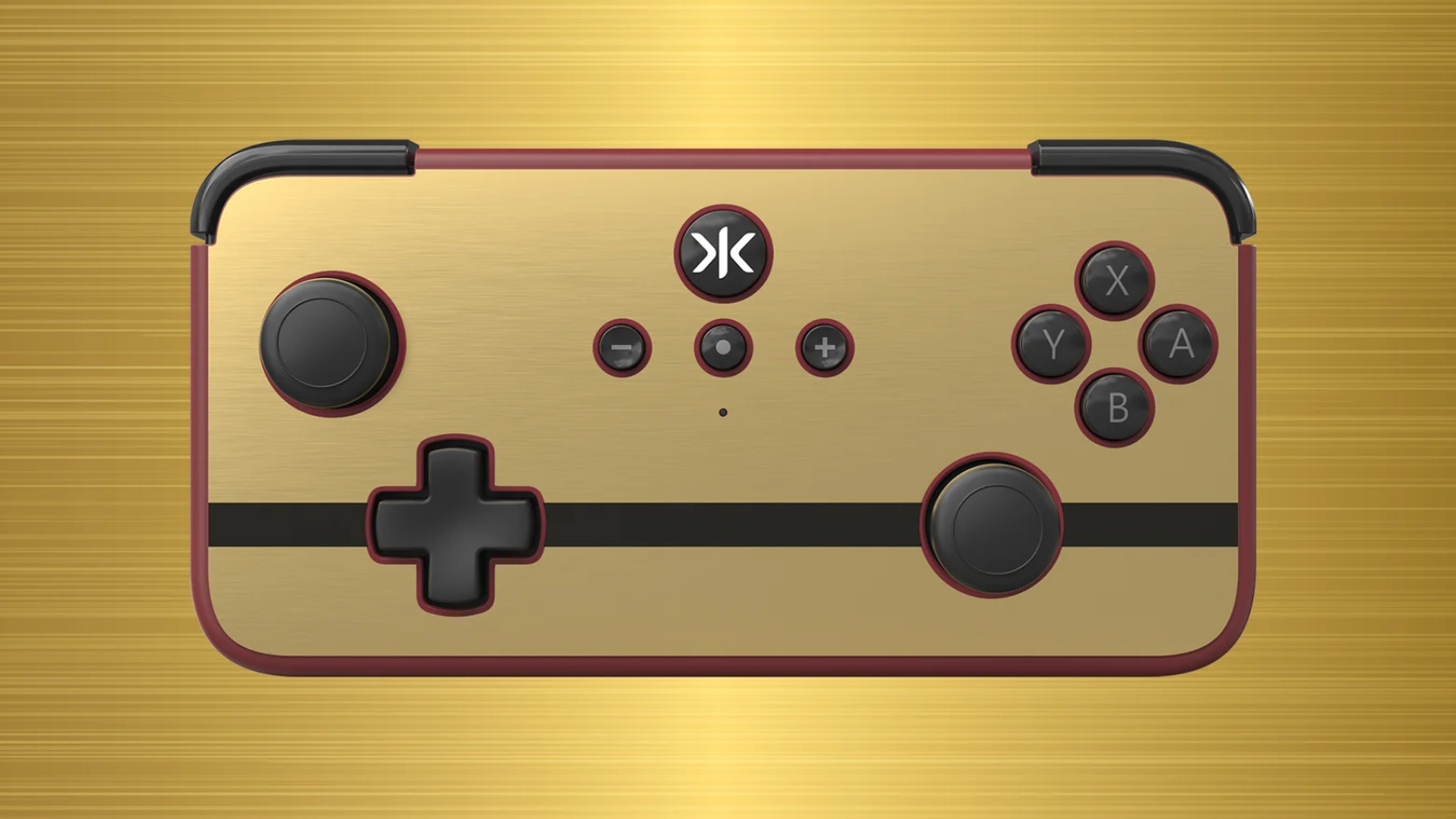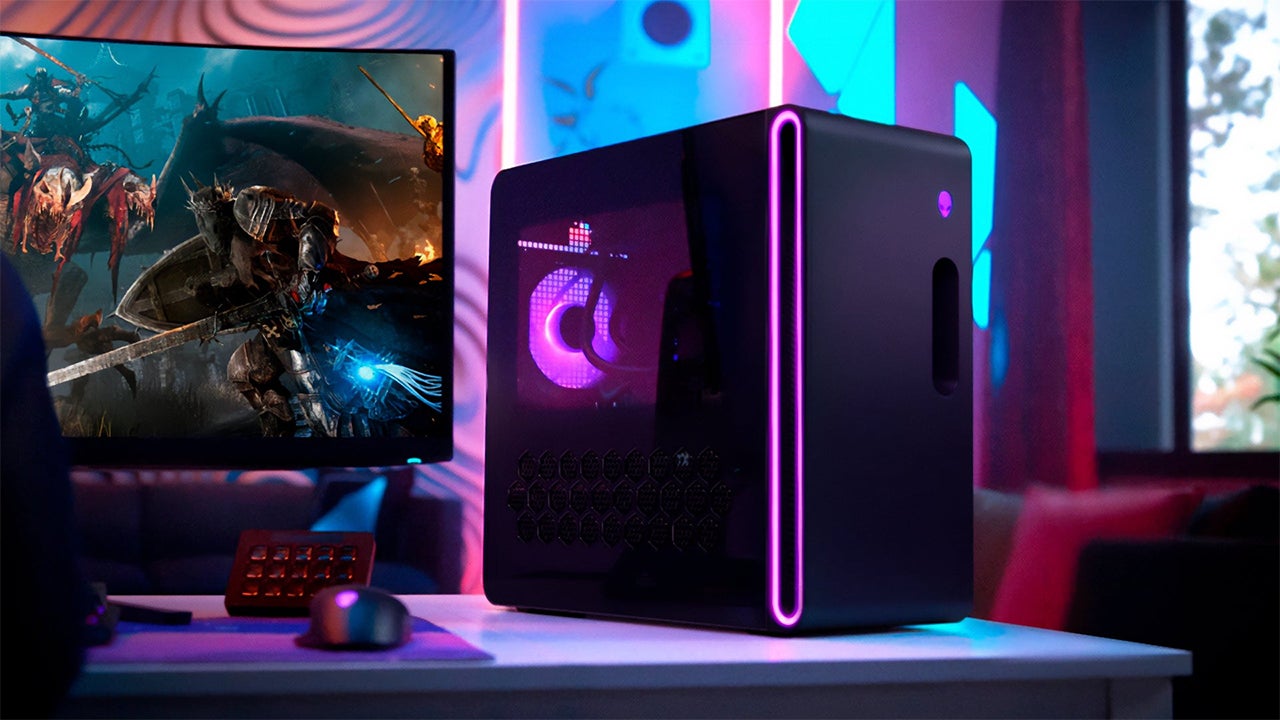I was halfway through the opening level of Warhammer 40,000: Space Marine 2’s campaign, unloading bolt rifle rounds alongside my two squadmates, when I found myself smiling at just how good it feels to be back in this futuristic grimdark fray. It’s been over a decade since the original, but Space Marine 2 reinvigorates the squad-based shooter series with seeming ease. The environments are varied and breathtaking, the running-and-gunning feels great, and the sense of comradeship while fighting with your team, be they bots or friends, can be exhilarating. It may not break much new ground in its genre, but it didn’t need to for me to have a blast playing through its dozen-hour campaign.
Let’s get this out of the way early: The original Space Marine clearly took inspiration from Gears of War, and this sequel follows suit. It’s a squad-based shooter starring heavily armored dudes who growl their dialog while either shooting guns or revving Chainswords to ward off invading aliens. The similarities don’t bother me a bit (especially when one could make the case that Gears borrowed from Warhammer first). It’s been years since I’ve played a game that scratched that particular itch, and Space Marine 2 uses the rich lore of Warhammer 40k to carve out its own identity. That’s true in both the meaty campaign that can be played solo or co-op, as well as two additional modes that let you upgrade your weapons and customize your armor between rounds, which are meant to keep you coming back after the credits roll.
The campaign drops you back into the considerable boots of Demetrian Titus, the hero of the first installment. It picks up over a hundred years later, and does a good job of explaining everything you need to know, whether you played the original or not. Despite the century-long gap, not much has changed for our dour hero since we last saw him. He’s still a gravelly-voiced, seasoned soldier who doesn’t appear to have aged at all thanks to his genetically-engineered longevity. He’s spent the last century serving in the Space Marines’ Deathwatch chapter, which goes on the most dangerous of missions. After an intense opening level that has you deploying a “Virus Bomb,” you’re rewarded for your bravery and dedication by being brought back into the fold as a blue-armored Ultramarine.
The story is more than serviceable, and it moves at a fast clip, sending your squad to interesting locations across several planets. It has a few twists and turns that bring it to surprising places, and there’s even some intriguing inter-squad conflict to spice things up. That said, the whole thing is pretty one-note: it’s all very serious. I get that there’s a war going on and lives are on the line, but just a dash of humor – even the gallows humor many other 40k games use – would have added a welcome extra dimension.
You're accompanied on your missions by two squadmates who are bots by default, but you can invite friends to take their place. The bots are serviceable comrades, capable of doing their part to fend off enemies and revive you when you fall in battle. But as with most games like this, it’s more fun to play with friends, which you can coordinate from your home base, called the Battle Barge.
Gone are the Orks from the first Space Marine, and in their place is humanity’s latest intergalactic enemy: the Tyranids. These alien monstrosities come in many forms, from hulking Carnifex beasts to hordes of smaller creatures that look like xenomorphs or velociraptors. Some can fly, while others swarm across the ground, piling on top of each other to scale cliffs in order to attack you and the rest of the Imperial Guard’s forces. You’ll encounter other enemy types as you progress through the campaign as well, which provides enough variety that I rarely got bored of blasting them to the shreds with an array of Imperial and alien weaponry.
It’s a good thing the guns and melee weapons feel great to use, because that’s how you’ll spend the bulk of your time in Space Marine 2. You can customize your loadout between missions, picking a primary weapon, sidearm, and close-combat accessory to start out with. You also find plenty of weapon caches scattered throughout the levels, letting you swap in flamethrowers, plasma blasters, sniper rifles, power swords, and all manner of explosives, from sticky bombs to shock grenades that deploy an electric area-of-effect. There’s a weapon for every style of encounter – though you usually don’t know what’s ahead when you have to choose. Checkpoints are frequent, though, so if you get wiped you can make a more informed choice the next time.
Hitting an enemy with any of those weapons produces a satisfying splatter of blood. Larger enemies on the brink of death flash red, indicating you can execute them with a gruesome finishing move. Performing executions recharges your shields, which is helpful, and you can pick up Medicae Stimms to heal, or enable Titus’s Righteous Fury special ability, which boosts your health bar as you slice through enemies with your melee weapon. I always appreciate it when recovering health in a shooter is tied to putting the hurt on your enemies.
In fact, just moving around feels great in Space Marine 2. You’re a hulking, heavily armored soldier, and walking feels appropriately chunky – but your character is also more nimble than he was in the previous outing, so that weight is never aggravating. It feels just right.
One of the main drawbacks of the original Space Marine was its drab brown-and-gray color palette – an ill-advised trend of the era it came out in. Thankfully, that’s gone in favor of much more colorful and lively environments in the sequel. Some levels have you tromping through alien worlds that are green and purple and lush with extra-terrestrial flora. Others are set in towering urban areas full of gothic buildings with stained-glass windows. Wherever your squad is deployed, the art design is uniformly stunning, gorgeous enough to justify leaving the previous generation of consoles behind.
Most areas are active war zones, with human soldiers fighting hordes of enemies both in the foreground and the background. Sometimes you’re following a tank through the ruins of a city, backing up squads of Astra Militarum soldiers. Other times you’ll see flying Tyranids swarm through the sky like a murmuration of starlings while platoons of soldiers blast projectiles at them. More than most military games, Space Marine 2 makes it feel like there really is a war going on, and you’re only one part of the effort. I’m usually not prone to taking screenshots, but here I found myself switching to photo mode in almost every level so I could capture the beauty.
The campaign is a fine enough chunk of game on its own, but that’s not all you get in Space Marine 2. In addition to Titus’s saga, you can play two other modes that aren’t so linear, each connected to the other: Operations and Eternal War.
Eternal War is a PvP mode, but unfortunately the pre-launch population was so low that I wasn’t able to test it out for this review – I’ll add an update later with my impressions. I was able to spend time with Operations, however, which lets you play side missions that are directly referenced in the main story but are carried out by other teams while Titus does his thing.
In both Operations and Eternal War, you get to choose from six classes of Space Marine, each with different loadout options and special abilities. There’s Tactical, which can use an Auspex Scan to highlight and weaken enemies; Sniper has a limited-use camo cloak; Bulwark plants a banner flag that restores the shields of any nearby squad mates; Vanguard has a grapnel launcher to pull himself into the action for close combat; Assault has the Jump Pack that Titus uses occasionally in the campaign; and Heavy get a bubble shield. All of the abilities are useful and fun to use in combat.
Playing these modes also earns you various currencies you can spend to upgrade your weapons and customize your armor with cosmetics, which turns out to be great fun. You can unlock a ton of neat emblems and charms for each piece of your armor, as well as new colors that represent the different Space Marine chapters. Pretty much all of the colors look cool as hell, and the ornament options let you adorn your dude with chains, skulls, and other details that wouldn’t be out of place on the cover of a heavy metal album.
The Operations levels themselves aren’t all that different from the ones in the campaign, even taking place in the same environments, which does make them a little bit less exciting. There are currently six missions, and while playing through them once was fun – especially with a team of co-op partners – I don’t really feel compelled to replay them, even to earn currency to upgrade my weapons and customize my armor. I’m still eager to try out the Eternal War PvP mode, as well as the additional modes promised in developer Saber Interactive’s post-launch roadmap, but at least at launch the PvE offerings are more a brief but amusing distraction rather than a mode I’ll keep returning to.







